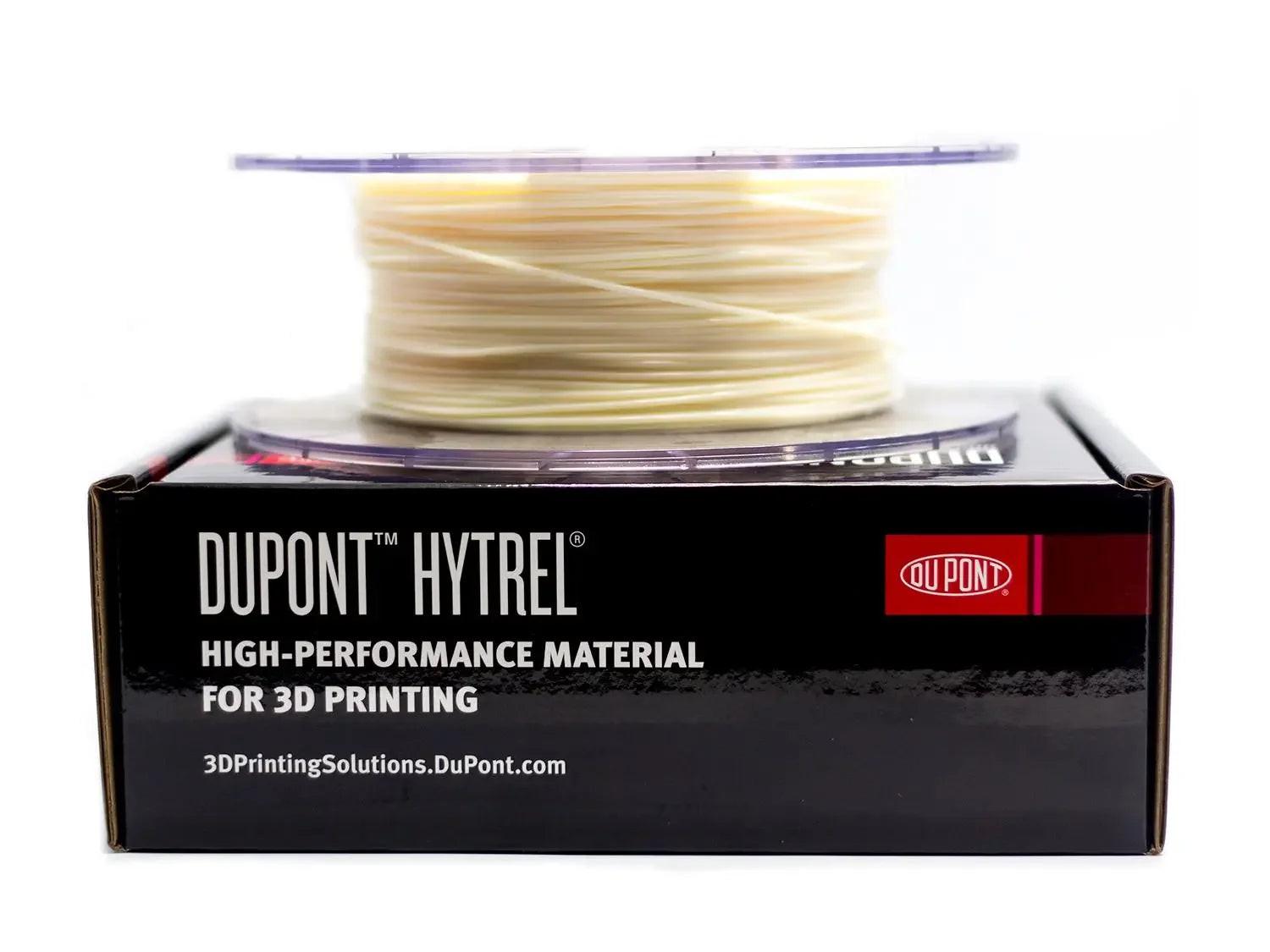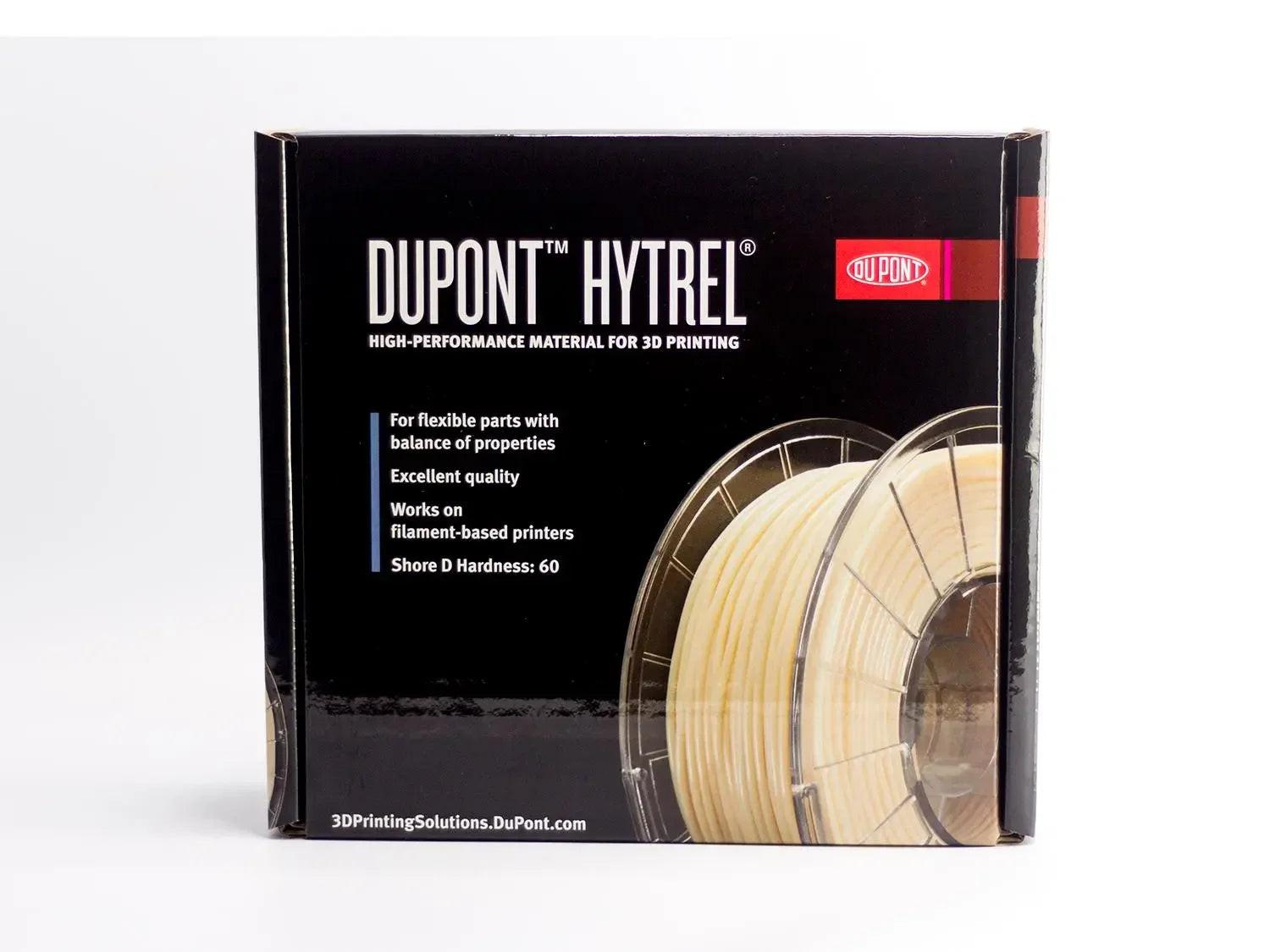Hytrel® 40D 3D Filament
DuPont™ Hytrel® TPC-ET thermoplastic elastomer is a versatile copolyester. Hytrel® combines the flexibility of rubber with the strength and processibility of thermoplastics. It combines resilience, and heat and chemical resistance with strength and durability. Hytrel® thermoplastic materials are used by customers across several industries (automotive, electrical, electronics, furniture, sporting goods, oil and gas etc.). **Some product photos courtesy of Matterhackers.com. Box photo showing 60D shore hardness is for Hytrel® 3D4100FL only. Hytrel® 3D4000FL has a shore hardness of 40D.**



